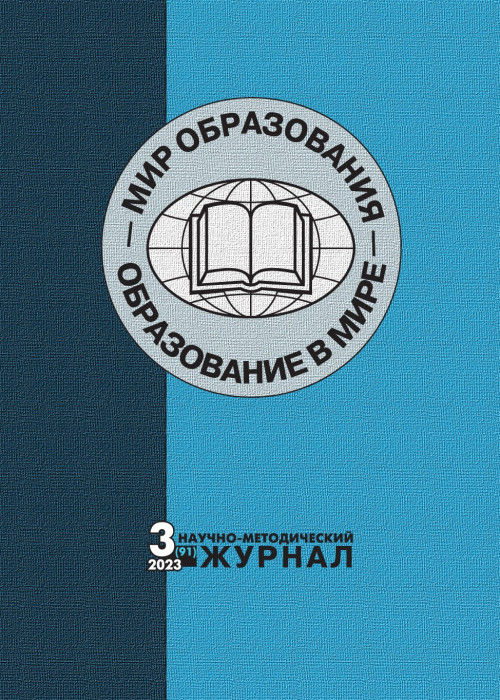Library
1. 15. Zhong S. Drug use disorders and violence: associations with individual drug categories / S. Zhong, R. Yu, S. Fazel // Epidemiologic reviews. — 2020. — Vol. 42, No. 1. — P. 103–116.
2. 14. Vaartio-Rajalin H. et al. Art making and expressive art therapy in adult health and nursing care: A scoping review // International journal of nursing sciences. — 2021. — Vol. 8, No. 1. — P. 102–119.
3. 13. Reed K. et al. Creative arts therapy as a potential intervention to prevent burnout and build resilience in health care professionals // AACN Advanced Critical Care. — 2020. — Vol. 31, No. 2. — P. 179–190.
4. 12. Meighan J. Clay play therapy / J. Meighan // Play therapy with children: Modalities for change. — Washington: American Psychological Association, 2021. — P. 177–190.
5. 11. McNiff S. Reflections on what “art” does in art therapy practice and research / S. McNiff // Art Therapy. — 2019. — Vol. 36, No. 3. — P. 162–165.
6. 10. Ma X. Artistic healing of post-disaster people through fibre art. SHS Web of Conferences / X. Ma, H. Zha // EDP Sciences. — 2023. — Vol. 162. — P. 1–8.
7. 9. Levis S. C. Neurodevelopmental origins of substance use disorders: Evidence from animal models of early-life adversity and addiction / S. C. Levis, T. Z. Baram, S. V. Mahler // European Journal of Neuroscience. — 2022. — Vol. 55, No. 9–10. — P. 2170–21
8. 8. Khalil R. The link between creativity, cognition, and creative drives and underlying neural mechanisms / R. Khalil, B. Godde, A. A. Karim // Frontiers in neural circuits. — 2019. — Vol. 13. — P. 1–16.
9. 7. Decreased reward-related brain function prospectively predicts increased substance use / C. P. Bart, R. Nusslock, T. H. Ng et al. // Journal of Abnormal Psychology. — 2021. — Vol. 130, No. 8. — P. 886–898.
10. Tastanova A. Obzor issledovanii vzaimosvyazi praktik osoznannosti s parametrom kreativnosti / A. Tastanova, M. Mun, N. Akhtaeva // KhABARShY Psikhologiya seriyasy. — 2023. — T. 74, № 1. — S. 200–211.
11. 6. Тастанова А. Обзор исследований взаимосвязи практик осознанности с параметром креативности / А. Тастанова, М. Мун, Н. Ахтаева // ХАБАРШЫ Психология сериясы. — 2023. — Т. 74, № 1. — С. 200–211.
12. Permina S. V. Osoznannoe tvorchestvo kak sposob integratsii lichnosti v protsessakh artterapii/ S.V.Permina// Chelovecheskii faktor: sotsial’nyi psikholog.— 2022.— №1.— S.260–270.
13. 5. Пермина С. В. Осознанное творчество как способ интеграции личности в процессах арт-терапии / С. В. Пермина // Человеческий фактор: социальный психолог. — 2022. — № 1. — С. 260–270.
14. Mazilov V. A. Problema vzaimosvyazi motivatsii i sposobnostei sub»ekta deyatel’nosti / V. A. Mazilov, T. V. Bugaichuk // Vestnik Vyatskogo gosudarstvennogo universiteta. — 2020. — № 2. — S. 107–114.
15. 4. Мазилов В. А. Проблема взаимосвязи мотивации и способностей субъекта деятельности / В. А. Мазилов, Т. В. Бугайчук // Вестник Вятского государственного университета. — 2020. — № 2. — С. 107–114.
16. Lopatkova I. V. Prakticheskaya psikhologiya khudozhestvennogo tvorchestva / I. V. Lopatkova. — Moskva, 2018. — 264 c.
17. 3. Лопаткова И. В. Практическая психология художественного творчества / И. В. Лопаткова. — Москва, 2018. — 264 c.
18. Koval’ O. V. Art-terapiya kak resurs dlya lichnostnogo rosta i dlya pomoshchi pri emotsional’noi dezadaptatsii / O. V. Koval’ // Psikhicheskoe zdorov’e. — 2023. — T. 18, № 4. — S. 36–38.
19. 2. Коваль О. В. Арт-терапия как ресурс для личностного роста и для помощи при эмоциональной дезадаптации / О. В. Коваль // Психическое здоровье. — 2023. — Т. 18, № 4. — С. 36–38.
20. Kiseleva O. A. Art-terapiya kak metod psikhokorrektsii: vozniknovenie i stanovlenie / O. A. Kiseleva // Universum: psikhologiya i obrazovanie. — 2022. — № 3 (93). — S. 28–31.
21. 1. Киселёва О. А. Арт-терапия как метод психокоррекции: возникновение и становление / О.А.Киселёва // Universum: психология и образование. — 2022.— №3 (93).— С. 28–31.
